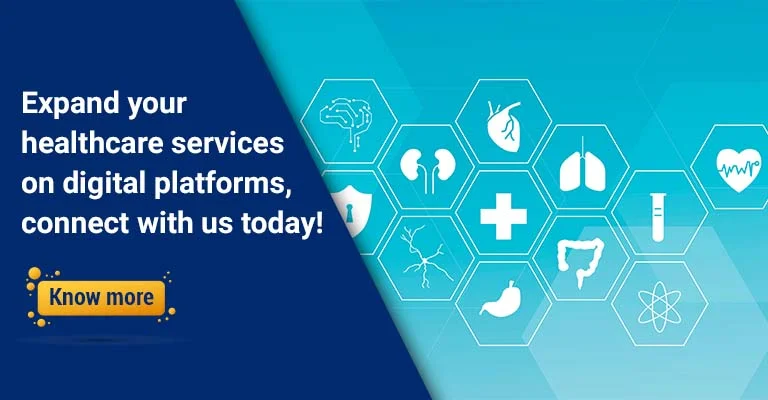HOW IMPORTANT IS DIGITAL MARKETING FOR THE HEALTHCARE INDUSTRY?
Pandemic or no, the healthcare industry will never cease to be of utmost importance to all of us. In fact, get this: according to David Feinberg, Google Health’s vice president, the search engine receives no less than 1 billion health-related searches every single day, accounting for a whopping 7 percent of all daily searches. Forget Google even: a 2011 Pew Research Center survey found that 88% of people sought information regarding their health online. And in a similar survey conducted more than a decade prior (!) to the aforementioned one, 70% reported being influenced in their healthcare decisions by what they found online.
The reason we felt the need to begin with a series of statistics is simply to give an idea of how profoundly the internet has impacted our relationship with the world of healthcare, to the extent that 3 out of 4 people in a recent McKinsey survey (we promise this is the last one) reported that they would rather use digital healthcare services than traditional ones. It’s not hard to see why: the virtualisation of said healthcare services has allowed for unprecedentedly instant communication with experts across geographical and other practical barriers.
As a result of all this, the digital healthcare market as it stands currently is booming rapidly.
OK sure, but how can digital marketing benefit healthcare businesses like mine?
- It can help in targeting by demographics such as age, location, gender etc., thus allowing for a more personalised experience for potential customers.
- Unlike in traditional marketing, it helps in tracking patient experiences through numerous tools and techniques.
- Speaking of digital marketing tools, several of them can be utilised to drive high quality leads through patient referrals.
- If used properly, it can reduce a business’ Cost Per Acquisition (CPA) by as much as half.
- At the same time, it can be used to drive up your search results on sites such as Google and Bing through Search Engine Optimisation (SEO).

(Some) helpful digital marketing methods for healthcare businesses
Now that we know how helpful digital marketing can be for digital businesses in the healthcare industry in general, here are some of the ways in which you can utilise it for yourself (that is, short of hiring the best digital marketing service providers in the game).
1. Search Engine Optimisation (SEO)
Its prior usage in this article notwithstanding, we’re sure you’ve heard this term many times before – either on our blog or elsewhere. So, what exactly is it? Well, simply put, SEO is the process by which a website’s traffic is increased by increasing its visibility across search engines. What differentiates it from most other forms of direct traffic is that SEO targets.
The most effective way to increase your business’ SEO score is to provide them with the best user experience possible on your website. This means that the website in question should have:
- Quality content (that also utilises relevant keywords)
- Eye-catching design
- An intuitive layout
- Low webpage load times
2. Content marketing
Speaking of quality content, content marketing is one of the most effective ways in which healthcare businesses like yours can market themselves to potential customers. This content, which is designed to establish said business as an authority in their respective healthcare niche, typically consists of:
- Blogs (har har)
- Infographics
- Videos
- E-books
We should also add here that the purpose of content marketing is to add value to your potential customers, which hence means that the self-promotional aspect of said content should not be obvious. On the other hand, try not to go overboard with technical terms and/or concepts – keep it accessible.
3. Social media marketing
As far as establishing immediate connections with your patients are concerned, nothing beats social media platforms such as Facebook, Twitter, Instagram or YouTube. Not only does it also allow for the kind of database-targeted marketing we’ve discussed earlier in this article (i.e., based on age, location, gender etc.), but it also allows you as a business to create further value for your potential customers in the following ways:
- Spreading awareness about how to stay physically healthy
- Sharing mental health tips for pandemic times
- Clearing doubts that may be common amongst your base
- Updating viewers on the latest official information regarding the pandemic
4. Pay Per Click (PPC) advertising
This might be yet another term that you’re familiar with, but in case you’re not: it’s a form of advertising in which your business services are promoted through display and text ads across social media, search engines and a host of other platforms for free – that is, until, someone clicks on them (hence the name). The best thing about such ads, however, is that they’re targeted in accordance to one’s past searches, thus ensuring that your leads are not only multiplied but also of a higher quality. You can enhance this even further by continually reviewing the performance of your ads on each platform and realigning your targets.
And there you have it – 4 effective ways in which you can leverage digital marketing to your advantage!
For more insights on digital marketing follow us on Instagram @dust.value
